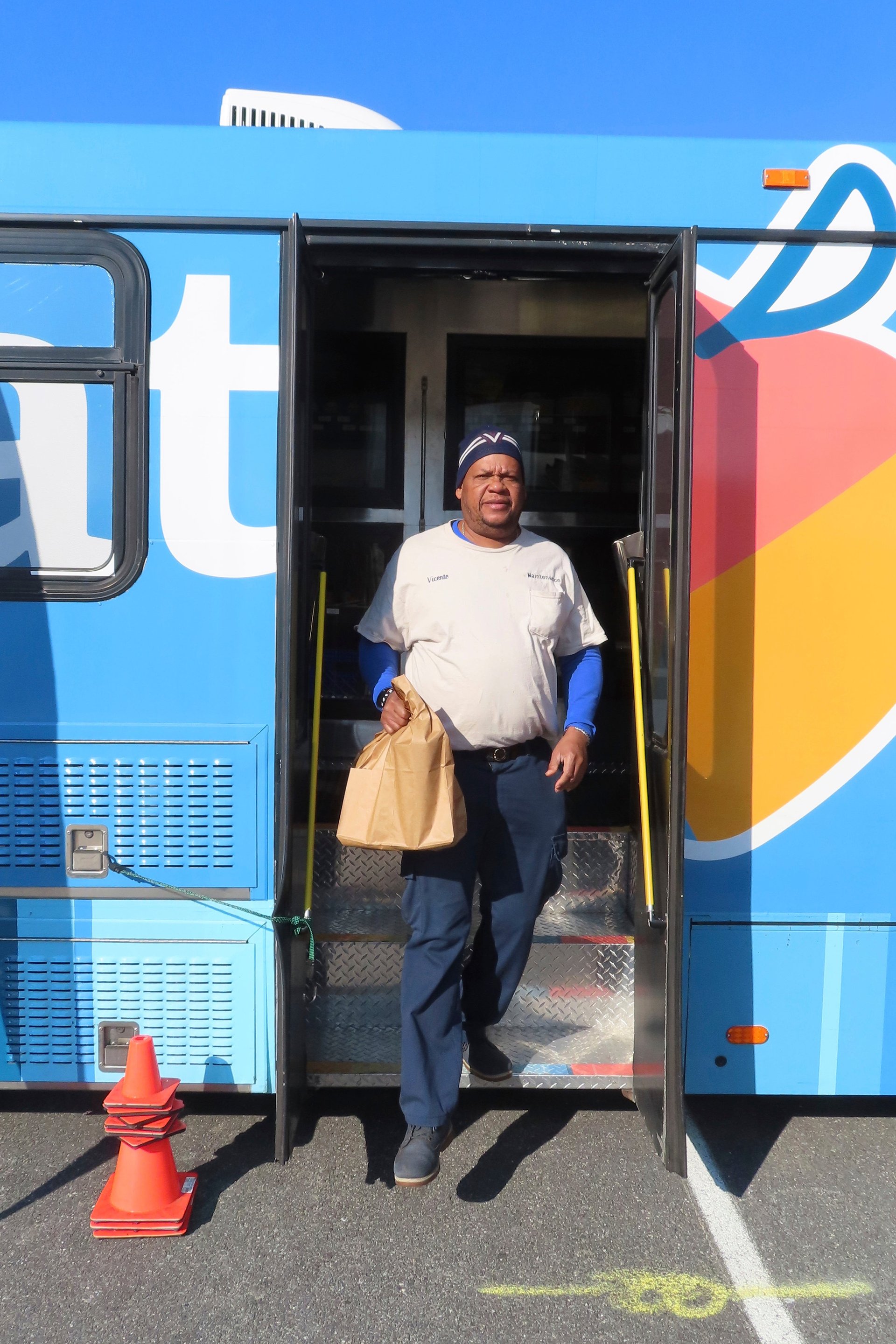With no supermarket for residents of Atlantic City, New Jersey and hospitals create mobile groceries
Five billion dollars worth of gambling gets done each year in Atlantic City

ATLANTIC CITY, N.J. (AP) — In this seaside resort, where $5 billion worth of in-person and online gambling gets done each year, there still is not a supermarket.
Suggested Reading
People who live in Atlantic City must either drive off the island to a mainland store, take public transportation — whose cost eats away at the amount left for food — or shop in pricey, poorly stocked corner stores in their own city.
A much-touted, heavily subsidized plan to build what would be the city’s first supermarket in nearly 20 years fell apart earlier this year. Now, the state and a hospital system are sending a converted school bus laden with fresh food available for purchase into the city as a temporary solution.
Virtua Health brought a modified transit bus to a poor neighborhood in Atlantic City on Friday as part of its “Eat Well” program, funded by the New Jersey Economic Development Authority.
The program aims to bring high quality food and fresh produce to economically deprived areas that lack meaningful access to healthy food. Atlantic City is second on the list of 50 New Jersey communities designed as “food deserts” due to lack of access to such food.
Delorese Butley-Whaley, 62, was delighted to board the bus to buy a half gallon of milk and a loaf of bread for a total of $3.
She usually walks 30 to 45 minutes to a local corner food store, straining her bad knees, or takes the bus there in bad weather. Sometimes she ventures to a full-fledged supermarket on the mainland in Absecon, a $10 cab ride in each direction. That quickly eats into her food budget.
“We don't have a real supermarket here,” she said. “This is something we all need. I love this. It's really convenient. I was able to get everything I needed for the rest of the week right here."
Last week, in her first trip to the bus, she bought salmon.
“Salmon!” she said. “Imagine that!”
April Schetler, who runs the program for Virtua Health, said it is designed to fill part of the void in communities without a real supermarket like Atlantic City and Camden. All its food is sold at 30% to 50% below normal retail prices.
There is no income restriction on the program; anyone who shows up can shop, she said.
“We try to bake dignity into everything we do,” Schetler said. “By not asking for financial information, we're providing a different experience.
“We come right to them, in their neighborhoods," she said. "It can be a $25 cab ride just to get you and your groceries home.”
It wasn't supposed to be this way in Atlantic City, where in Nov. 2021, Gov. Phil Murphy and top elected officials held a much-ballyhooed ground breaking ceremony for a new ShopRite supermarket that was to be built on vacant land not far from the casinos.
The state was willing to commit $19 million in public funds to see the project across the finish line. But construction never started and the project fell apart. The state said earlier this year it would seek new bids for another store.
A message seeking comment left with the developer, Village Super Market Inc., was not immediately returned Friday.
The Virtua food bus is one of two similar efforts paid for by the state with $5.5 million in funding. AtlanticCare, another southern New Jersey hospital system, is adding a mobile grocery to its food pantry program that also will include classes on health education, cooking classes and incentives to buy healthy foods.
“People come here to have fun, they go to the casinos,” said JoAnn Melton, 42, who also shops at a corner store she says is beset by loiterers and drunks from a nearby liquor store. “But what about those that actually live here? We're just trying our best to live and raise a family.”
The grocery bus “is awesome,” she said. She bought dishwasher detergent, bleach, coffee, lemons, bananas and bread, all for $16. She often pays $5 for two sad-looking bananas at the corner store.
“We really need this,” she said. “This is good for us.”
___
Follow Wayne Parry on X, formerly Twitter, at www.twitter.com/WayneParryAC